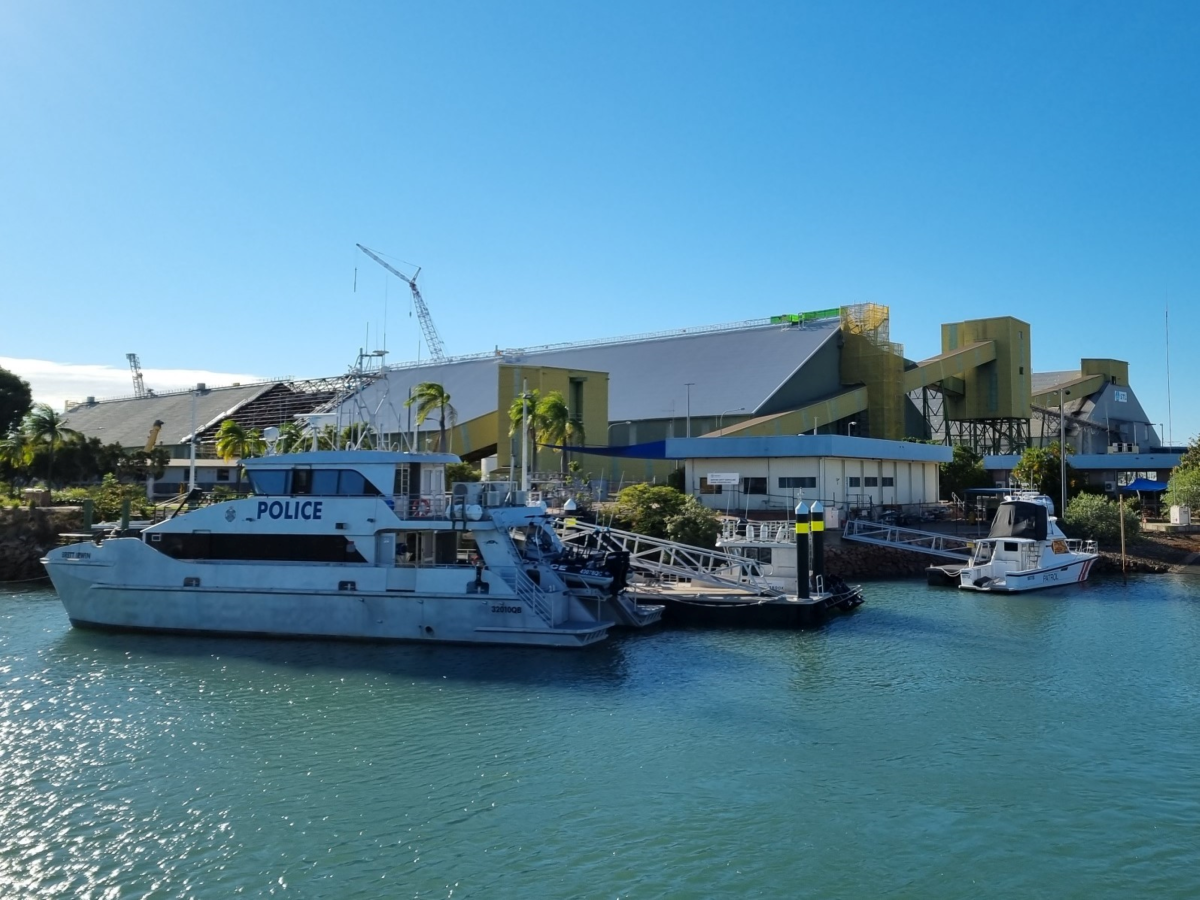Ports, jetties, port facilities, and ship loaders play a vital role in global trade and transportation, serving as critical hubs for cargo handling and maritime operations. However, these infrastructures face constant exposure to corrosive elements due to their proximity to marine environments. Corrosion can lead to structural deterioration, safety hazards, and operational disruptions, impacting the efficiency and reliability of port operations. To address these challenges, designers and engineers must consider suitable corrosion-resistant materials. PERMALITE® cladding and structural products shaped from marine grade aluminium have been shown to be an excellent choice for these applications due to their exceptional corrosion resistance, durability, lightweight properties, and sustainability.
Corrosive elements in ports, jetties, port facilities, and ship loaders
When designing and building ports, jetties, and ship loaders, several corrosive elements specific to the marine environment need to be considered. The proximity to seawater, exposure to saltwater, and constant moisture can significantly impact the materials and structures. Here are some of the key corrosive elements to consider:
- Saltwater Exposure
Ports, jetties, and ship loaders are exposed to saltwater from the sea or inland water bodies. Saltwater is highly corrosive to conventional building materials, leading to rust formation and accelerated material degradation. - Airborne Salt Particles
Coastal areas and marine environments are characterised by salt-laden air. Strong coastal winds can carry airborne salt particles that settle on structures near the water's edge. Salt spray or splashing from waves and ships can also deposit salt particles on building materials. These salt particles can deliquesce and create a corrosive environment, particularly on exposed metal surfaces, compromising the integrity of port infrastructure. - Humidity and Moisture
Marine environments are characterised by high humidity and moisture levels. Continuous exposure to moisture can promote corrosion on metal components, leading to weakened structures and equipment. - Chemical Exposure
Port facilities often handle various chemicals, such as industrial pollutants or cargo-related substances. Exposure to chemicals can exacerbate corrosion, posing safety risks and accelerating wear and tear on building materials. - Galvanic Corrosion
When dissimilar metals come into contact in the presence of an electrolyte (e.g., seawater), galvanic corrosion can occur. It is important to consider galvanic compatibility between different metals used in port infrastructure and employ suitable insulating materials or protective measures, such as dielectric couplings or coatings, to prevent galvanic corrosion.
The PERMALITE® advantage
The PERMALITE® range of cladding, rainwater and structural products have a number of attributes that make them ideal for port infrastructure applications including:
- Exceptional Corrosion Resistance
PERMALITE® products manufactured from marine grade aluminium alloys, such as 5052 and 5251, are specifically designed to withstand the corrosive elements present in marine environments. These alloys contain higher levels of corrosion-resistant elements like chromium and magnesium, forming a protective oxide layer on the aluminium surface. This barrier effectively shields the metal from direct contact with corrosive agents, ensuring superior corrosion resistance and prolonging the lifespan of port infrastructure. - Durability and Strength
Port facilities require robust materials that can withstand harsh marine conditions and the dynamic loads imposed by cargo handling operations. PERMALITE® aluminium products exhibit excellent mechanical properties, offering high tensile strength and impact resistance. The durability PERMALITE® cladding, rainwater and structural products can help ensure the integrity of port buildings, jetties, and ship loaders. - Lightweight Properties
PERMALITE® aluminium is significantly lighter than alternate building materials like steel and concrete. This lightweight characteristic simplifies transportation, handling, and installation processes, resulting in cost savings during construction. - Low Maintenance Requirements
The corrosion-resistant properties of PERMALITE® aluminium reduce the need for frequent maintenance. Unlike some materials that require periodic painting or protective coatings, PERMALITE® aluminium maintains its integrity and appearance with minimal maintenance, resulting in cost savings and increased operational efficiency. This characteristic is especially beneficial for busy port facilities, where maintenance access may be difficult to organise. - Aesthetic Appeal
In addition to its functional benefits, PERMALITE® cladding also offers aesthetic appeal. PERMALITE® cladding is available in a range of both traditional and contemporary profiles enabling modern and stylish building designs that enhance the visual appeal of port facilities and jetties, providing a welcoming environment for visitors and contributing to the overall image of the facility. - Sustainability and Recyclability
PERMALITE® aluminium is an eco-friendly material choice for port infrastructure. It is highly recyclable, contributing to reduced environmental impact and resource conservation. Choosing PERMALITE® cladding, rainwater and structural products aligns with sustainable building practices, promoting eco-conscious approaches in the maritime industry.
Conclusion
Designing and building ports, jetties, port facilities, and ship loaders require careful consideration of corrosive elements to ensure the reliability, safety, and efficiency of these critical infrastructures. Saltwater exposure, humidity, chemical handling, abrasive particles, and erosion are some of the factors that can compromise the integrity of conventional building materials in marine environments.
PERMALITE® cladding, rainwater and structural products offer a comprehensive solution to combat corrosion in port infrastructure. With exceptional corrosion resistance, durability, strength, and lightweight properties, marine grade aluminium ensures the long-term reliability and safety of these structures. Its resistance to corrosion, low maintenance requirements, sustainability, and design versatility make it an optimal choice for creating resilient and efficient port facilities.
By embracing PERMALITE® aluminium products, port authorities, architects, and developers can construct robust and sustainable port infrastructure that withstands the challenges of marine environments and supports global trade and transportation. Adopting PERMALITE® will contribute to the longevity and efficiency of ports, jetties, port facilities, and ship loaders, solidifying their pivotal role in driving economic growth and facilitating global connectivity.
